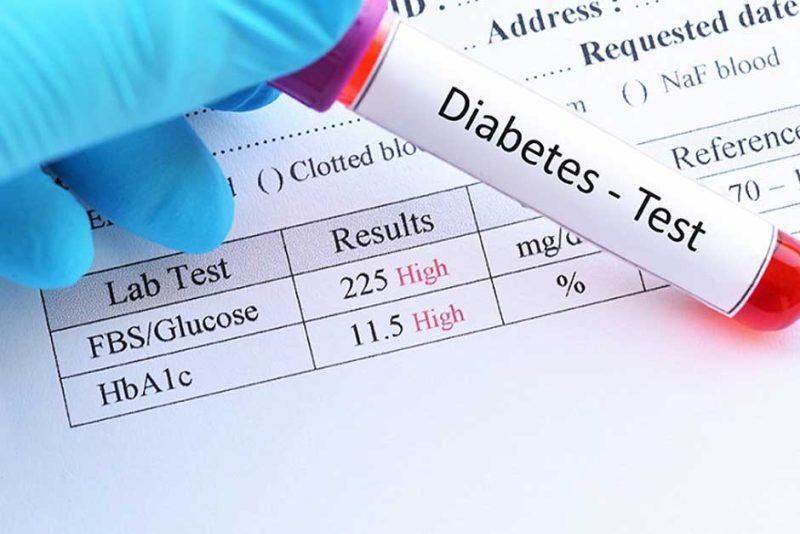
Type 1 and Type 2 diabetes can both be monitored by blood tests. Type 1 diabetes, which is caused by a shortage in the body’s ability to produce insulin, frequently, first appears in infancy. The body uses insulin to move glucose from the blood into tissue cells so that it may be used as cellular energy.
In Type 2 diabetes, the body can produce insulin, but either it cannot produce enough insulin or an excessive number of insulin-blocking cells form, preventing the insulin from getting to the cells.
A blood test might show very high blood glucose levels if insulin is not being created or is being prevented from accessing the cells. Early diabetes detection allows for the management of symptoms with medication and dietary modifications. Diabetes, however, can cause serious medical issues including heart disease and renal failure if it is not properly treated. If you or a loved one may have diabetes, be sure to be tested. To find a blood test, put “Apollo blood test” into the Google search bar.
LIST OF TESTS DONE TO DIAGNOSE DIABETES
To establish if you have diabetes or prediabetes, your doctor will do a number of tests. Depending on whether you have symptoms or not, as well as if you are pregnant, your doctor may advise different testing.
- Fasting plasma glucose test
Your blood glucose level is assessed using the fasting plasma glucose (FPG) test at a specific moment in time. Your doctor will administer the test in the morning after you’ve fasted for at least 8 hours in order to get the most accurate results. When someone fasts, they only consume little amounts of water.
- A1C test
The A1C test (also known as Hemoglobin A1C, HbA1C, glycated haemoglobin, and glycosylated haemoglobin test) is a blood test that shows your average blood glucose levels over the three months prior to testing. One is allowed to intake food and water before this test.
However, in certain circumstances, the A1C test might not be reliable. Your A1C test will be reported as a percentage, such as an A1C of 7%. Your typical blood glucose levels are directly proportional to the percentage of A1C. Before administering the A1C test, one’s doctor will take into account a number of variables such as if you have other conditions, such as pregnancy or any kind of anaemia, and other blood-related issues.
- Random Plasma Glucose Test
Instead of giving a test where it is necessary to fast for up to 8 hours, doctors will occasionally administer a random plasma glucose test to obtain a faster diagnosis.
- Oral Glucose Tolerance Test
This test which can diagnose Type 2 diabetes, prediabetes and gestational diabetes, is difficult to conduct as well as being more expensive. One must abstain for at least 8 hours before taking the test. Blood is drawn by a medical practitioner to determine post-fasting glucose level, after which one will be asked to consume a sugar-rich beverage. Two hours later, a second blood sample is obtained to measure your blood glucose level after consuming the sugar-rich beverage. In case if one’s blood glucose level on the second reading is elevated, you will be given a diagnosis of diabetes.
In case if the patient is pregnant, blood will be drawn every hour for 2 to 3 hours. You may develop gestational diabetes if your blood sugar levels are high two or more times during the OGTT.
- Glucose Challenge Test
The Glucose Challenge Test, (also called glucose screening test) is given by doctors to check for gestational diabetes during pregnancy. No fasting is required for this test. A medical practitioner will draw a sample of your blood for this test an hour after you’ve consumed a sugary beverage containing glucose. You might need to come back for an oral glucose tolerance test while fasting if your blood sugar is very high—135 mg/dL to 140 mg/dL or higher.
(The tests listed above can confirm a diagnosis of diabetes but cannot tell you if you have type 1, type 2, or a rare form of the disease called monogenic diabetes.)
TESTS TO IDENTIFY THE KIND OF DIABETES
Diabetes is a condition in which the body does not produce enough insulin or does not use it as effectively as it should. Insulin is a hormone that helps glucose enter cells and be used for energy.
Type 1 diabetes develops when the body’s immune system destroys the beta cells in the pancreas that produce insulin. Type 2 diabetes develops when the body either doesn’t make enough insulin or can’t use insulin properly to break down glucose. Gestational diabetes develops during pregnancy due to hormonal changes and typically goes away after delivery.
The tests for each type of diabetes are different so your doctor may check for specific autoantibodies to determine the kind of diabetes you have if you have it.
Diabetes is a chronic metabolic disorder that causes high blood sugar levels because the body cannot produce or properly use insulin.
There are several different types of diabetes. The most common type of diabetes is Type 2, which accounts for 90-95% of all cases. Type 1, which accounts for 5-10% of cases and usually appears in childhood or adolescence, and gestational diabetes, which occurs during pregnancy and usually disappears after delivery.
- Genetic Testing
Most types of monogenic diabetes, which are brought on by a change—or mutation—in a gene, may be diagnosed by genetic testing. Although monogenic diabetes can affect anybody, although it is more prevalent among new-borns who get the disease before turning six months old, certain teenagers, and some young people.
- Autoantibodies
Your doctor may check for specific autoantibodies to determine the kind of diabetes you have if you have it. Autoantibodies are immune system proteins that wrongly target healthy tissues and cells for assault. Your blood will be sampled by a medical practitioner for this test. You may have type 1 diabetes if autoantibodies to the disease are discovered in your blood.
Your doctor may administer this test to you to see whether you have a higher chance of acquiring type 1 diabetes if you do not already have diabetes but a parent or sibling does. You might wish to become familiar with the signs and symptoms of diabetes and undergo follow-up testing at your doctor’s advice.
Be sure to get tested if you suspect a diabetes condition in yourself or a for your loved one today. To find a blood test, put “Apollo blood test” into the Google search bar.
- Diagnostic Tests
Your doctor may also ask you to take a fasting blood glucose test to measure your blood sugar level at the time you have not eaten for 8 hours or more
- Insulin Resistance Test
An insulin resistance test measures how well your cells respond to the hormone insulin









